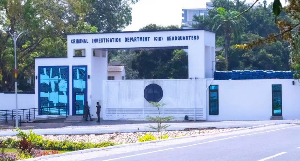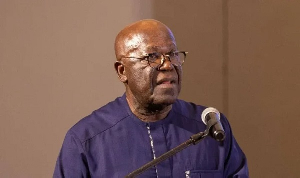Sustainable development is an integration of economic, social and environmental development to revitalizing and maintaining the economic health of the country. It is about community-based development that relies on self-help, community initiatives, culture and environmental principles.
Sustainable community development means that countries will be more self-supporting and can maintain themselves through economic self-reliance. It also means that a nation will have self-control and environmentally sound development and ability of future generations to meet their own needs.
Achieving economic self-reliance implies that each community basically depends on its own strength and resources through community initiatives as against over-dependence on external economic forces. Thus, each country makes uses of its own resources both human and physical to meet its local needs.
The obvious question is: how could a country with relatively lower amount of resources become self-reliant?
All countries, even the poorest ones have natural resources. The goal is to find that resources, put it at work, and keep the benefit in the countries. One approach of achieving self-reliance is that create more with less; add value to it; make something new and by yourself; and trade with equal partners.
Every country has wealth and the potential to generate more or additional wealth. What is lacking is how to identify these wealth and potentials. Therefore the job is to discover these resources and make maximum use of them to meet local needs. Production on the mass scale characterized by diversity of goods and services for the local markets is self-reliant development. Communities need to be inspired by a spirit of "get involve", entrepreneurship, inventiveness, integration and local governance. They need to open their minds to new methods and concepts about how wealth is created.
Let take recycling for example. Recycling is a very important economic activity in preserving the environment but at the same time generating local wealth. While reducing expenditures on waste or garbage disposal, it is cheap and readily available resources, and acting as a source of raw materials for country's business development. As a form of conservation, it reduces the rate at which the country depletes its own natural wealth and resources. This implies that nation consumes what it produces and produces what it consumes. As various researchers have noted, engaging in recycling means the resource use replenishes itself with its own reprocessed waste and which extracts the maximum work out of its own existing resources. By disposing less, countries are in better position to pollute less, meaning that residents are living in an ecologically sound environment. The processing of waste materials will also serve as a source of employment avenue for majority of the local residents. This is self-supporting and ecological friendly development.
Let me talk about the importance of spending within the boundaries of a country. Any time money is spent within the country it becomes new source of income for another economic agent. Once an economic activity is initiated within the country it triggers a chain reaction. In as much as money is spent within the country, it generates additional income and wealth in the economic system.
For instance, initial production of an orange juice to replaces an imported product encourages start-up of another local business to produce the orange juice containers which are used to store the juice, and another making the boxes for final distribution and so on with multiples of economic activities.
However, this multiplier effect stops as income leaks out of the country. At least two main sources have been identified to explain how income leaks out of a local economic spending stream. The first and most importantly, is through purchases of imported goods and services. When money is spent on imported goods and services, a significant proportion of that amount leaks out of country's income stream and instead, generates a successive chain reaction and expansion for the external firm and its locality.
Another way income leaks out of country's spending stream is savings particularly when residents decide to save outside the country. This is not to say that savings is detrimental to nations development. Savings become beneficial only if it is within the boundaries of the country and in return, plug back into income generating activities by way of "soft" loans and overdrafts to local businessman and woman.
While self-reliant does not exclude external trading activities, it can only be achieve if external trading activity is minimized. In this modern age, no country can achieve complete self-sufficiency without some level of trading with other countries. However, as evidence in the third world countries has shown unarranged trading involving unequal partners serves as detrimental to development of the weaker partner, leading to dependency and greater impoverishment of the poorer party. It is therefore crucial for a country to ensure mutual benefit if they are to engage in external exchanges. For maximum mutual benefits, countries need to trade with equal partner and not just any partner.
Research Officer, Economic Analysis Branch
Saskatchewan Industry and Resources
2103 - 11th Avenue, 2nd Floor
Regina, SK, Canada, S4P 3V7
Phone: (306) 787-1674
Fax: (306) 787-2198 Visit our website at: http://www.ir.gov.sk.ca/

Views expressed by the author(s) do not necessarily reflect those of GhanaHomePage.














